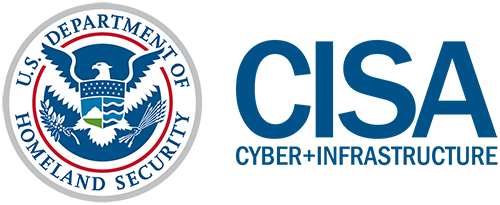 The Freedom From Religion Foundation is strongly objecting to the Department of Homeland Security’s designation of the clergy as “essential” in securing critical infrastructure.
The Freedom From Religion Foundation is strongly objecting to the Department of Homeland Security’s designation of the clergy as “essential” in securing critical infrastructure.
A recently issued guidance by the Cybersecurity and Infrastructure Security Agency (under DHS oversight) on critical infrastructure workers during the COVID response includes a new addition: “clergy for essential support.” This is unjustifiable and should be rescinded, FFRF demands.
Acting Secretary of Homeland Security Chad Wolf recently discussed this change in a radio interview with Tony Perkins of the Christian Nationalist Family Research Council, who then basically claimed credit for the addition of clergy to the essential category. In the same interview, Wolf explained the purpose of guidance on essential personnel. That description reveals precisely why clergy are not, in any sense, essential:
Our Cybersecurity and Infrastructure Security Agency or CISA, as you indicated, created what we call the Essential Critical Infrastructure Workers Guidance or list. And so this is a list of industries in our critical infrastructure sectors that need to go to work every day, need to keep the economy running, the supply chain full. And as governors put in place shelter-in-place procedures, we need to make sure that certain individuals can still come and go and to do their job so that the lights turn on, the water keeps running, there’s gas in the trucks to deliver the PPE, and the like.
“Clergy do none of those things,” FFRF Co-Presidents Dan Barker and Annie Laurie Gaylor write to Wolf. “Their role does not remotely touch on infrastructure, energy, transportation or medicine. The collapse of any of these could threaten the security or welfare of the United States, which is why maintaining infrastructure is a DHS issue. The collapse of the clergy or churches would in no genuine way impair this country.”
Version 3.0 of the guidance inadvertently illustrates this point by listing, immediately after clergy, as essential those “workers who maintain digital systems infrastructure supporting other critical government operations.” Recognizing this disconnect, Wolf in his interview with Perkins later attempted to justify the addition of clergy, claiming: “We did include clergy in there recognizing that they provide a supportive and essential service, particularly in a number of hospitals, funeral homes, and the like.”
Hospitals will function just fine without chaplains, who are often intrusive toward nonbelieving patients, the state/church watchdog responds partly tongue-in-cheek. More seriously, it points out that without clergy roaming the halls, there will be fewer people likely to spread the virus and more personal protective equipment for medical professionals.
And of central importance here, FFRF asserts, is that there’s no valid reason for declaring clergy essential, which suggests that this was a political, not a practical decision. Perkins was seeking unwarranted privilege for himself and fellow Christians — and it’s disappointing and constitutionally suspect that the DHS has caved to Perkins’ ridiculous demand.
The DHS and the Cybersecurity and Infrastructure Security Agency are inappropriately privileging religious citizens and clergy, FFRF maintains. The Supreme Court has long recognized that the First Amendment “mandates governmental neutrality between religion and religion, and between religion and nonreligion.” FFRF is asking the Department of Homeland Security to reissue these important guidelines and remove clergy from the list of essential infrastructure personnel.
The Freedom From Religion Foundation is a national nonprofit organization, with more than 31,000 nonreligious members across the country, that works to uphold the constitutional separation between state and church and educates about nontheism.

